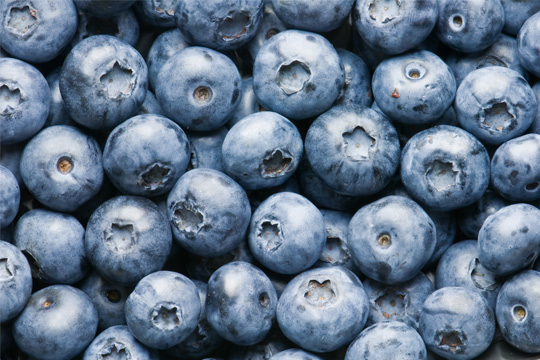
Reducing Food Waste in Foodservice
October 16, 2018 by Doreen Garelick, Dietetic Intern
Our intern Doreen attended a food waste summit for restaurants and compiled these tips to help food service operators redirect…
Nutrition 101
July 31, 2012

Culinary Nutritionist Andrea Canada imparts her knowledge on the benefits of antioxidants and identifies some common sources.
You may have noticed that more and more grocery store items are beginning to display the message “Now with antioxidants!” or something to that effect. Products like cranberry juice and green tea have boasted about their antioxidant content for quite some time now. Just last week I saw a two liter bottle of soda advertising its antioxidant content (more on this later). It’s important to understand what antioxidants are and how they can benefit you so that you can make an informed decision next time you do your grocery shopping.
Antioxidants are substances found in food (or beverages) that may protect our cells from highly reactive molecules called “free radicals.” Free radicals are molecules that can form as the result of normal body processes or through harmful environmental exposures such as cigarette smoke or radiation. These unstable molecules can damage our body’s cells and DNA, and may play a role in the development of cancer, heart disease and other chronic conditions. Our bodies may use antioxidants to neutralize these reactive free radicals before they can cause damage to our cells.
Vitamins C and E, carotenoids and selenium are antioxidants and foods containing these are an important part of a balanced diet. Rather than getting your antioxidants from dietary supplements or highly processed foods with antioxidants added (that soda that boasted antioxidants actually had vitamin E added), I recommend consuming a variety of fruits, vegetables and other foods containing these nutrients. Below are some common foods and the antioxidants that they contain:

October 16, 2018 by Doreen Garelick, Dietetic Intern
Our intern Doreen attended a food waste summit for restaurants and compiled these tips to help food service operators redirect food waste from landfills.
Nutrition 101

Nutrition 101
September 26, 2018 by Doreen Garelick, Dietetic Intern
Ever notice headlines about rapid weightloss? Dietetic Intern Doreen Garelick looks deeper into a recent eye-catching headline to see if there's any truth behind it.
Connect
 Follow us on Twitter
Follow us on Twitter Friend us on Facebook
Friend us on Facebook Follow us on Pinterest
Follow us on Pinterest Follow us on Instagram
Follow us on Instagram Read our Blog
Read our Blog Watch videos on YouTube
Watch videos on YouTube Watch videos on Vimeo
Watch videos on Vimeo Connect with us on Linkedin
Connect with us on Linkedin Find us on Foursquare
Find us on Foursquare
Tweets by @SPEcertifiedBlog Search
Categories
SPE Certified Newsletter
Sign up for news on the latest SPE-certified venues, events and SPE updates.
We will never share your personal information with a third party.